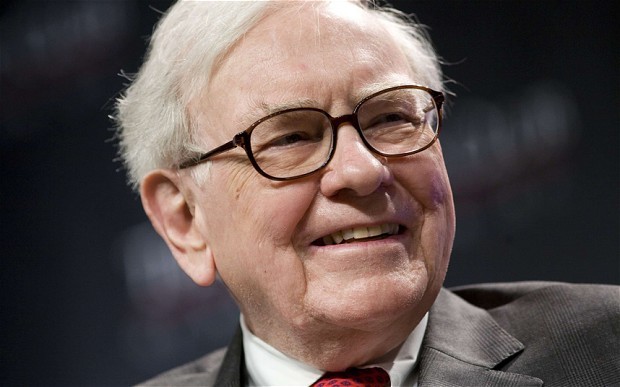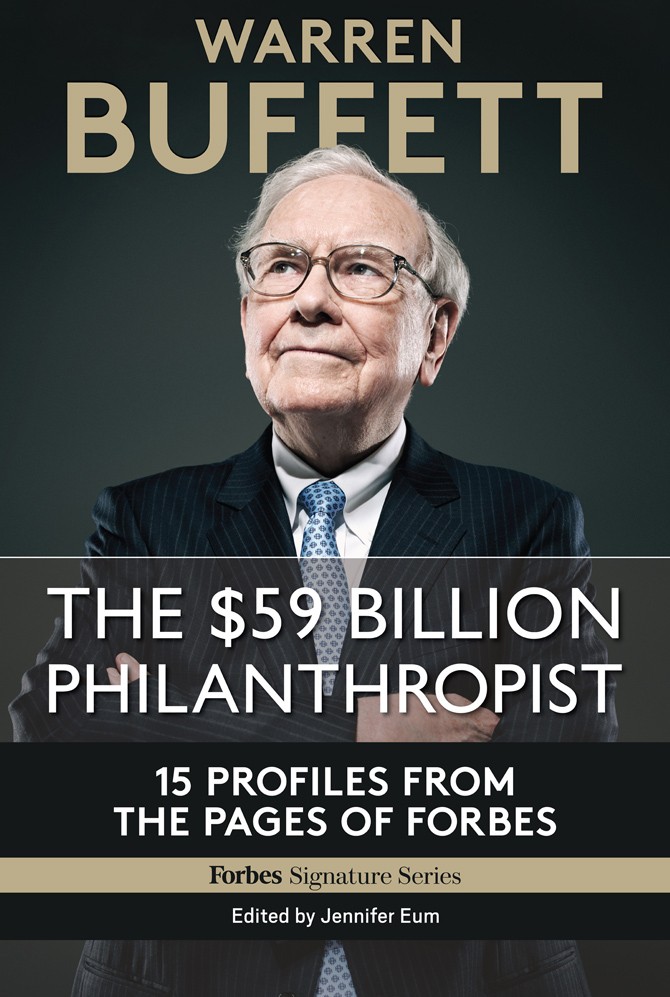Warren Buffet s Investment Styl Like Warren
Post on: 16 Март, 2015 No Comment

Buffett’s Investment Style
I am going to try and breakdown their investment style into different topics and explain them and what they have done in the past and views on what they might do in the future.
What to Look for in Companies
Pricing Power
Warren and Charlie like companies where there is a monopoly and they can easily change prices. Like his acquisitions of See’s Candy, the Washington Post and to a lesser extent Anheuser Busch. If he raises prices slightly over time they will not affect sales, this gives him pricing power. A company that has the untapped potential to raise prices of their respective products and not lose any sales is what they look for. This could be a perk when analyzing the cost of the business, a cheap company would look even cheaper if its earning power could be increased.
Maintain Earnings Without Continual Investments
A great company that can maintain their earnings without the need to continually reinvest in it will stand the test of time. Berkshire Hathaway is a perfect example of this, the textile industry required continual investment in machinery to stay competitive without produce returns on the investment. Companies like the textile industry can make tons of cash but in order to make cash next year they pour it all back in only to get a little out. It is like quick sand eventually your going to drown in it. But a company that can maintain its earnings without continual investments is like a cash cow.
Moats
Warren Buffett and Charlie Munger love businesses with moats. A moat is an advantage that one company has over its competition that they cant easily acquire themselves. One perfect example is Coca-Cola Company (KO), the brand name, flavor, and dominance in the global market separate it from its competitors. Pepsi, one of its rival although having a large market share itself still does not have the global recognition of Coca-Cola.
A good way to find companies with moats is to compare profit margins with the profit margins of it’s competitors. The higher the profit margins the wider the moat.
Dividends
Warren and Charlie do not believe in paying out dividends and have not since taken control of Berkshire. They have a few different views on paying dividends. One is taxes, Berkshire already pays taxes on everything it earns and if it were to pay out dividends to you then it would be taxed again. This double taxation greatly reduces the value of the earnings that Buffett and Munger can easily be redeployed into current or new businesses. Second, is they continual perform the $1 test. That is they would rather retain $1 instead of paying it as a dividend as long as they can achieve more than $1 of value for each $1 they retain. Lastly Buffett has said that he will never rule out a dividend. Lately he has been amassing a rather large pile of cash waiting to find worthwhile investments. In an interview with Charlie Rose he had been quoted as saying he gets between $100 and $150 million a week. In recent times it has been more difficult for him to find substantial investments that will give him the return that he is looking for. If this continues, the $1 test fails, and Buffett and Munger cannot be redeployed the money they will consider paying dividends.
Selling Businesses
Warren and Charlie will not sell any business even if it is under performing. Warren has said that it is impossible to predict the right time to sell, he learned this at a young age with his first purchases. He purchased three shares of Cities Service Preferred at $38 a share. Soon after he purchased it the price dropped to $27, but eventually recovered to $40 where he sold it netting a $5 profit. He missed out on the companies subsequent rise to $200 a share. Looking back on it he has wished he never sold anything. But there is an exception, He has sold stock to buy another stock. This does not mean that the company is a horrible company, just that the new company is that much better. He has also been known to trim some of his holdings during times when valuations are out of whack. Charlie Munger once said the ideal time is when you’ve found something that you like immensely better. Isn’t it perfectly obvious that that’s the ideal time to sell? Warren and Charlie do not seem to like to sell anything but with the possibility of gaining so much more, they will.
Now there are Warren Buffett’s and Charlie’s favorites. Some of his long term holdings like Coca-Cola Company, Washington Post and Geico (although he has sold this in the past) are ones that they will probably never part with. They have been so good to him and they continue to be good, maybe not up to the same level as some of the earlier returns, but they prove to be consistent returns that will last for quite a long time.
Frictional Costs
Avoid them at all costs! Buffett warns of them many times over and is afraid that the financial industry is getting a little out of control. Fees and commissions are increasing and getting more complicated as time goes on. As advisor charge fees, brokers charge commissions, government taxes capital gains, and other miscellaneous expenses we are slowly losing our piece of the pie. Let’s say that the market returns are 12% a year. Now you advisor fees and commissions add up to about 2% a year, your advisor would have to average at least 14% a year to break even with a person who just owned an index (index funds usually have fees attached to them as well, but are usually much lower than fees on actively managed funds). Now how many managers have been able to beat the market on average over all those years? Not many and none as good as Warren Buffett.
In Buffett’s 2005 letter to shareholders he tells a story of families called gotrocks who own all the business in America. They receive the profits from all the companies and over the years have become very rich. As time goes on, with the help from the helpers they start to buy and sell their parts of the businesses to make a little extra money. The helpers fees slowly reduce the the profits they were making before. Noticing that there performance was not as good as in the past they decide to hire managers to help them out for a fee of course. But some of these managers are terrible. Now they hire consultants who help them pick managers for another fee. Now there are three levels of fees greatly diminishing returns. So instead of going back to the original way, they hire yet another hyper-helper. In the end there are four levels of fees for diminished returns and the gotrocks are the hadrocks
Buffett goes on to mention in the letter that if Sir Isaac Newton had not lost a bundle in investing, he might have gone on to discover the fourth law of motion For investors as a whole, returns decrease as motion increases
Do Not Buy Stock, Become a Partner
When you buy stock you become a partner in a business, not just some shareholder. If you take this view of ownership it will help you better realize which companies are right for you. You not going to go out and just buy stock based on the recommendation that so and so said this stock is about to skyrocket. You will spend more time researching the stock and become better acquainted with it. You will know the ins and outs of the business, how it makes its money, how it is better than its competitors.
Becoming a partner makes it a more difficult decision to sell, which according to Warren Buffett, you should not be doing unless something immensely better comes along. Thinking about becoming a partner before you buy makes it easier to find those businesses that you can buy and hold onto for the rest of your life.

Remember do not buy stocks, become partners in your businesses.
Diversification
With everyone in the financial industry telling you to diversify, you may wonder why the greatest investor in the world has not. Although throughout his years in the business Berkshire Hathaway has become a pretty diverse company but it did not start that way. One of Warren Buffett’s reasons for success is lack of diversification.
With the amount of research that is required to be done on a company, it is difficult to devote that much time to numerous companies. Why invest with 10 companies with 75% certainty when you can become a partner in one company with 100% certainty. Warren Buffett and Charlie Munger have done this over time. By making these decisions and finding that perfect company no matter what sector or market it was in they have slowly built Berkshire Hathaway into a diverse company. Over time you can too, slowly buy larger positions in companies instead of many small positions in numerous companies and eventually you will have a somewhat diversified company.
Share Repurchases
This is a touchy subject, Warren Buffett and Charlie Munger both like and dislike share repurchases. It depends on each case of the repurchases
Buffett on the Next Warren Buffett
Warren Buffett advises young eager people interested in becoming the next Warren Buffett to learn accounting. Not just learn it but learn everything about it, what it is and what it is not. Learn what accounting can teach you about a company and what it also might hide. He also advises to learn and understand a variety of businesses. Try to study how businesses work and what makes a particular business profitable. Learn about the competition and what makes a business unique, learn the sector it is in and how the company and it’s competitors interact and compete with each other.
If possible talk with owners and discuss with them how they run their business and the particulars of their business. Find out the small little details of their company. For example a service business, how does their compare with a competitors? Is their service a higher quality? Is there a pricing difference? Is there no competition in their local area? Take a look at previous job experience. Even if you had a small part-time job, you can still start to analyze the company from the inside. If you have been at a job for a while and have worked you way up the corporate ladder, you can make a clearer analysis of the business.
Read everything you can get your hands on. Learn about the different views people have on business. Read everything you can on a particular business, from annual reports, quarterly statements, SEC filings, to news articles and investment analysis.
After doing this research and analysis, you should be somewhat knowledgeable of how different types of companies operate and should be able to make a judgment about the company for yourself.














